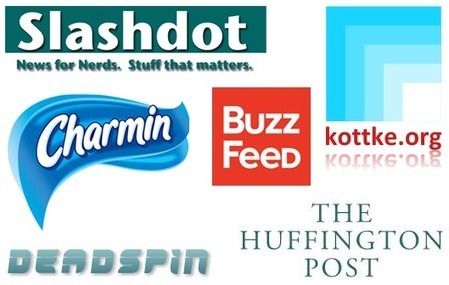I curated and posted this a few months ago but feel it's relevant and timely today. (What brought this to mind was another important article written by Axel Schultze, which I have commented on below.
Here's what I said about Gideon Rosenblatt's post.
This is one of those gems that I love to share. It was written by Gideon Rosenblatt in response to an earlier article written by Eli Pariser, "The Filter Bubble", which is about the way algorithms (based on our personal searches) affect the results that are returned to us, as a result, we're not seeing the whole picture.
"Computer algorithms aren't the only thing contributing to the 'Internet Filter Bubble."
**In the world of the information networker, curating content is only half the game. The other half is curating the curators.
**In that power to choose our connections, rests our ultimate power to reshape our information filter bubbles and radically improve our perception of reality.
**Who we choose to connect with in our social networks deeply affects our ability to see a diversity of information.
My takeaway from this is that whereas technology may restrict the results returned to us by search engines, the other, and perhaps more important half of the equation is controlled by us! It is well documented that we are more likely to influenced by our circle of friends and associates than by anything else that we may find (or that may find us!).
By effectively curating our circles of influence, we increase the value of this ever important means of discovery and therefore of our entire online experience.
**This in turn can make us far more effective and informative consumers as well as curators, when we widen our own circles.
Great article by Axel Schultze CEO of xee.me
"Why SEO will Be Gone in 5 to 10 Years" as he talks about "Relationships and Recommendations Soon More Valuable Than SEO" (Robin Good)
Jan Gordon: "Here's what caught my attention:
Axel: As long as people search for a product not knowing their name or a technology, not knowing its source or a solution not knowing who is a potential supplier SEO is an important part of the marketing mix...
However, this is slowly and steadily changing.
**Today 60 – 80% of the so called educated purchase decision is based on recommendations by trusted individuals or groups that have no or no significant interest in the sale but helpful and experienced people using or knowing the product or service in need.
And the number of recommendation based purchases is steadily growing. I'm sure it will hit the 80 – 90% range in the next 5 to 10 years.
Now – what does that mean to SEO?
Why should a business invest in search engine optimization if most of the purchase decisions are based on recommendations?
Wouldn't it be smarter to invest into the "recommendation chain" instead in SEO?
Wouldn't it be more effective and successful to make sure people recommend a product than hoping to come up higher in the list of search results?"
Curated by Jan Gordon covering "Content Curation, Social Business and Beyond"
Read the full article: http://bit.ly/AxRrEr
Via janlgordon
Curated by Jan Gordon covering "Content Curation, Social Business and Beyond"
Image by Istockphoto from an article by Social Media Examiner
Read the full article: [http://bit.ly/AxRrEr]
Via
janlgordon,
k3hamilton,
juandoming



 Your new post is loading...
Your new post is loading...













Lots of learning from these 10 leading content curation sites.